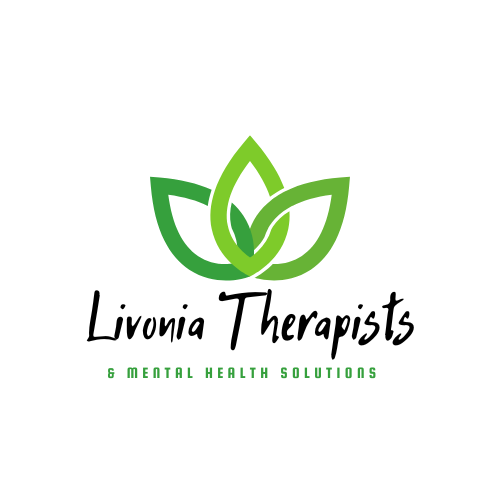Recognizing the Signs of Depression: Find Trusted Mental Health Support in Livonia, Michigan
Understanding Depression and How to Get the Right Help in Livonia

Feeling overwhelmed, exhausted, or emotionally numb for long periods of time can make even the simplest tasks feel impossible. When these feelings don’t go away, they may be signs of depression — a common but serious mental health condition that affects people of all ages and backgrounds.
At Livonia Therapist Mental Health Solutions, we know how difficult it can be to recognize depression in yourself or someone you care about. What’s more, finding the right therapist or mental health provider in Livonia can be confusing and stressful, especially when you're already struggling to feel motivated.
That’s where we come in.
We’re not a mental health clinic — we’re a referral service. Our mission is to connect individuals and families in Livonia, Michigan with licensed therapists, psychologists, counselors, and psychiatrists who align with your needs, goals, insurance, and preferences.
In this guide, you’ll learn:
- The most common signs of depression
- How depression can affect your daily life
- Why early support matters
- The types of therapy that work
- How to get connected to the right mental health provider in Livonia
What Is Depression?
Depression, clinically known as major depressive disorder (MDD), is more than just feeling down. It’s a serious mental health condition that impacts your mood, energy, behavior, relationships, and overall ability to function.
It may be triggered by stress, trauma, loss, or life transitions — but sometimes, depression can show up without any clear reason.
People often describe depression as feeling stuck, emotionally drained, or like they're living life in black and white. It’s important to know that depression is common, and more importantly — it’s treatable.
With the right combination of therapy, lifestyle changes, and sometimes medication, people can and do recover.
Common Signs and Symptoms of Depression
Depression doesn’t always look the same for everyone. However, many people experience several of the following symptoms over a period of two weeks or longer.
1. Persistent Sadness or Hopelessness
Feeling low, empty, or hopeless most of the day — even when things seem okay on the outside — is a hallmark symptom of depression.
2. Loss of Interest or Pleasure
Things you used to enjoy, like hobbies, social activities, or time with loved ones, may feel dull or meaningless.
3. Changes in Appetite or Weight
You may find yourself eating significantly more or less than usual, with noticeable changes in weight.
4. Sleep Disturbances
This can include trouble falling asleep, staying asleep, or sleeping too much and still feeling tired.
5. Low Energy or Fatigue
Even small daily tasks may feel exhausting or overwhelming.
6. Feelings of Guilt or Worthlessness
Negative self-talk, shame, and guilt — especially over things outside of your control — are common in depression.
7. Difficulty Concentrating
You may struggle with memory, decision-making, or focusing on work, reading, or conversations.
8. Physical Aches and Pains
Depression can manifest physically, leading to headaches, digestive problems, or muscle aches without a medical cause.
9. Irritability or Anger
Some people feel more easily annoyed, frustrated, or restless — especially men, teens, and younger adults.
10. Thoughts of Death or Suicide
In severe cases, depression may lead to suicidal thoughts or self-harming behaviors. If you or someone you know is in danger, call the Suicide & Crisis Lifeline at 988 — available 24/7.
How Depression Affects Daily Life
Depression isn’t just an emotional condition — it can impact your relationships, work performance, health, and day-to-day functioning. You might:
- Withdraw from loved ones
- Struggle to focus at work or school
- Neglect hygiene or basic routines
- Feel like you're just "going through the motions"
- Experience conflict in personal or professional relationships
Left untreated, depression can also increase the risk of developing anxiety, substance use issues, or chronic health problems.
Why Early Support Is So Important
The sooner you seek support for depression, the better your chances of recovery. Early intervention can:
- Shorten the duration of symptoms
- Prevent the condition from worsening
- Improve relationships and productivity
- Boost overall mental, emotional, and physical well-being
Most importantly, getting help is a courageous step — not a sign of weakness.
How Livonia Therapist Mental Health Solutions Can Help
At Livonia Therapist Mental Health Solutions, we understand how overwhelming it can be to find the right therapist, especially if you're already feeling low or unsure where to begin.
We’re a referral service, not a clinic, and our goal is to match you with a licensed mental health provider in Livonia, Michigan who fits your needs — whether you're looking for someone who specializes in depression, trauma, anxiety, or other concerns.
Here’s How Our Referral Process Works:
- Reach out to us.
You don’t need a diagnosis or all the answers — just let us know how you’ve been feeling. - We match you with a provider.
Our team connects you with local, licensed professionals in Livonia who match your therapy goals and preferences. - We confirm insurance and availability.
We’ll check which providers accept your insurance and are currently accepting new clients. - You begin your journey to healing.
Once matched, you can schedule your first appointment directly with the provider.
This process is fast, confidential, and designed to take the stress out of getting the help you need.
Types of Therapy That Help With Depression
Every person’s experience is different, so it’s important to find a treatment approach that fits your specific needs.
The professionals we refer clients to may offer evidence-based treatments such as:
1. Cognitive Behavioral Therapy (CBT)
Helps you identify and reframe negative thought patterns, making it easier to manage symptoms and improve daily functioning.
2. Dialectical Behavior Therapy (DBT)
Focuses on emotional regulation, mindfulness, and building healthier relationships with yourself and others.
3. Interpersonal Therapy (IPT)
Addresses grief, transitions, and relationship dynamics to strengthen communication and social support.
4. Psychodynamic Therapy
Explores how your past may be influencing present behaviors and emotional struggles.
5. Medication Management
For some individuals, antidepressants prescribed by a psychiatrist or psychiatric nurse practitioner can be helpful as part of a broader care plan.
Self-Care Tips for Managing Depression
Alongside professional support, these lifestyle habits can help improve your mood and overall mental health:
- Stay physically active. Even 15–20 minutes of walking can lift your mood.
- Eat nourishing foods. Prioritize whole foods, protein, and healthy fats.
- Prioritize sleep. Stick to a regular sleep schedule and limit screen time before bed.
- Limit alcohol and caffeine. Both can worsen mood and disrupt sleep.
- Connect with supportive people. Isolation makes depression worse — even a short conversation helps.
- Practice mindfulness. Meditation, journaling, or deep breathing can calm your mind.
- Celebrate small wins. Progress is progress, no matter how small.
Remember, healing doesn’t happen overnight — but with consistency and support, it does happen.
Frequently Asked Questions
1. What’s the difference between sadness and depression?
Sadness is temporary and tied to specific situations. Depression is persistent, lasts for weeks or months, and affects many areas of your life — including sleep, appetite, and motivation.
2. Can depression go away without treatment?
Mild cases might improve over time, but many people benefit from therapy and, in some cases, medication. Getting professional help usually leads to faster, more lasting improvement.
3. What causes depression?
There’s no single cause. Depression can result from genetics, life stress, trauma, medical conditions, and chemical imbalances in the brain.
4. How do I find the right therapist in Livonia?
That’s what Livonia Therapist Mental Health Solutions is here for. We simplify the search by connecting you with vetted, licensed professionals who accept your insurance and align with your needs.
5. How can I support someone who might be depressed?
Listen without judgment. Encourage them to seek professional help. If they mention suicidal thoughts, contact the 988 Lifeline right away.
Get Connected to Mental Health Support in Livonia, Michigan
If you or someone you love is experiencing symptoms of depression, know that you're not alone — and help is available.
Livonia Therapist Mental Health Solutions is here to guide you through the process of finding the right mental health care provider — someone who truly understands and can help you move forward.
We work with a trusted network of therapists, counselors, psychologists, and psychiatrists in Livonia, MI, who are currently accepting new clients and offer compassionate, evidence-based care.
Take the First Step Toward Feeling Better
Depression can make the world feel small and overwhelming. But reaching out for help is the first step toward healing.
Let us make it easier for you.
📞 Call (734) 402-8654today to be matched with a trusted mental health provider in Livonia, Michigan.
You don’t have to navigate this alone — the right support is just one conversation away.
Contact Us Today
Get in Touch with Us Today– We're Here to Support Your Path to Wellness
Contact Us
We will get back to you as soon as possible.
Please try again later.

Notice: By submitting your information, you agree that it may be securely shared with local licensed therapists and mental health professionals for the purpose of helping you find the best match for your needs and insurance coverage. We do not provide clinical services directly.
